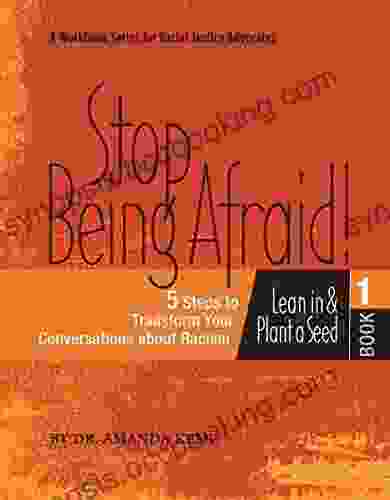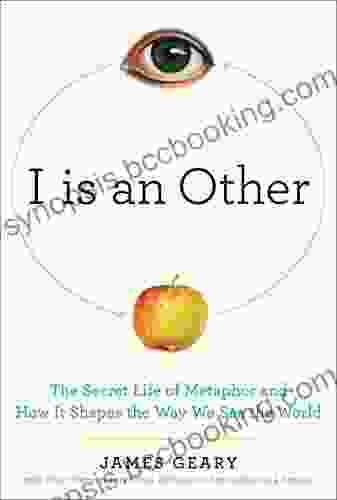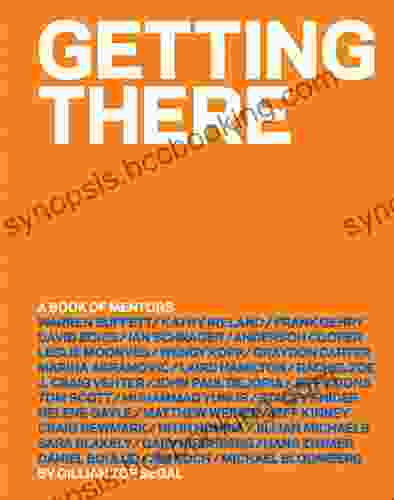Steps To Transform Your Conversations About Racism | The Ultimate Guide To Effective Dialogue

Racism is a complex and challenging issue to discuss. It can be difficult to know where to start, and even more difficult to have a productive conversation that leads to understanding and change.
This book provides a step-by-step guide to help you have more effective conversations about racism. It will help you to:
- Understand the different types of racism
- Identify your own biases
- Develop the skills to listen to and understand others' perspectives
- Have constructive conversations that lead to change
The first step to having effective conversations about racism is to understand what it is. Racism is a system of oppression that gives advantages to one race over another. It can be overt, such as discrimination or hate crimes, or it can be more subtle, such as unconscious bias or microaggressions.
5 out of 5
| Language | : | English |
| File size | : | 1122 KB |
| Text-to-Speech | : | Enabled |
| Screen Reader | : | Supported |
| Enhanced typesetting | : | Enabled |
| Word Wise | : | Enabled |
| Print length | : | 180 pages |
| Lending | : | Enabled |
There are many different types of racism, including:
- Individual racism: This is when an individual holds racist beliefs or prejudices.
- Institutional racism: This is when racism is built into the policies and practices of institutions, such as schools, workplaces, or the criminal justice system.
- Structural racism: This is when racism is embedded in the very fabric of society, such as in the way that wealth and power are distributed.
We all have biases, including racist biases. These biases are often unconscious, and they can influence our thoughts, feelings, and actions.
It is important to be aware of your own biases so that you can avoid letting them interfere with your conversations about racism. There are a number of ways to identify your biases, including:
- Take an implicit bias test. These tests can help you to identify the unconscious biases that you may have.
- Pay attention to your own thoughts and feelings. When you are talking about race, pay attention to the thoughts and feelings that come up for you. Are you feeling defensive? Angry? Uncomfortable? These feelings may be a sign that you are being biased.
- Talk to others. Talk to people of different races and ethnicities about their experiences with racism. This can help you to understand the different ways that racism can manifest itself, and it can also help you to challenge your own biases.
One of the most important skills for having effective conversations about racism is the ability to listen to and understand others' perspectives. This can be difficult, especially if you do not agree with what the other person is saying.
However, it is important to remember that everyone's experiences are valid, and that we can learn a lot from each other by listening to different perspectives.
There are a number of ways to improve your listening skills, including:
- Be present. When you are listening to someone, be fully present and attentive. Make eye contact, and avoid interrupting.
- Suspend judgment. As you are listening, try to suspend judgment. Do not immediately dismiss what the other person is saying, even if you do not agree with it.
- Ask questions. If you do not understand something, ask questions. This will help you to clarify the other person's perspective.
- Reflect back. Repeat what the other person has said in your own words. This will help you to show that you are understanding, and it will also give the other person a chance to correct you if you have misunderstood something.
Once you have a good understanding of racism and your own biases, and you have developed the skills to listen to and understand others' perspectives, you are ready to start having constructive conversations about racism.
Constructive conversations are conversations that are respectful, open, and focused on finding solutions. They are not about winning or losing, or about proving who is right and who is wrong.
Here are some tips for having constructive conversations about racism:
- Choose the right time and place. Don't try to have a conversation about racism when you are both tired or stressed. Find a time and place where you can both relax and focus on the conversation.
- Start with the intention of listening. The goal of a constructive conversation is to understand each other's perspectives and to find common ground. Start with the intention of listening to what the other person has to say, and try to understand their point of view.
- Be respectful. Even if you disagree with what the other person is saying, be respectful of their opinion. Avoid name-calling or other forms of disrespect.
- Focus on solutions. The goal of a constructive conversation is to find solutions to the problem of racism. Focus on what you can do to make a difference, and avoid getting bogged down in the problem itself.
- Be open to change. No one is perfect, and we all have things to learn. Be open to changing your own views and perspectives as you learn more about racism.
Conversations about racism can be difficult, but they are essential for creating a more just and equitable society. By following the steps in this book, you can learn how to have more effective conversations about racism that lead to understanding and change.
5 out of 5
| Language | : | English |
| File size | : | 1122 KB |
| Text-to-Speech | : | Enabled |
| Screen Reader | : | Supported |
| Enhanced typesetting | : | Enabled |
| Word Wise | : | Enabled |
| Print length | : | 180 pages |
| Lending | : | Enabled |
Do you want to contribute by writing guest posts on this blog?
Please contact us and send us a resume of previous articles that you have written.
 Book
Book Novel
Novel Page
Page Chapter
Chapter Text
Text Story
Story Genre
Genre Reader
Reader Library
Library Paperback
Paperback E-book
E-book Magazine
Magazine Newspaper
Newspaper Paragraph
Paragraph Sentence
Sentence Bookmark
Bookmark Shelf
Shelf Glossary
Glossary Bibliography
Bibliography Foreword
Foreword Preface
Preface Synopsis
Synopsis Annotation
Annotation Footnote
Footnote Manuscript
Manuscript Scroll
Scroll Codex
Codex Tome
Tome Bestseller
Bestseller Classics
Classics Library card
Library card Narrative
Narrative Biography
Biography Autobiography
Autobiography Memoir
Memoir Reference
Reference Encyclopedia
Encyclopedia Pete Wilton
Pete Wilton Sara Dawn
Sara Dawn Robert Daley
Robert Daley George Weiner
George Weiner Louis Fischer
Louis Fischer Tracy Tresidder
Tracy Tresidder Georgeanne Brennan
Georgeanne Brennan John Pearce
John Pearce Rhonda K Garelick
Rhonda K Garelick Nathan Van Coops
Nathan Van Coops Gene Kranz
Gene Kranz Lorette Broekstra
Lorette Broekstra Geoff Meggs
Geoff Meggs Steve Erickson
Steve Erickson Torrey Podmajersky
Torrey Podmajersky Gary D Stewart
Gary D Stewart Georges Dionne
Georges Dionne Gary Coleman
Gary Coleman Gilbert Hernandez
Gilbert Hernandez Richard A Ruth
Richard A Ruth
Light bulbAdvertise smarter! Our strategic ad space ensures maximum exposure. Reserve your spot today!

 Gregory WoodsUnlock the Secrets to Medical School Acceptance and Debt-Free Graduation: A...
Gregory WoodsUnlock the Secrets to Medical School Acceptance and Debt-Free Graduation: A...
 Truman CapoteUnveiling the Ties that Bind: Five Sisters, One Extraordinary Family, and the...
Truman CapoteUnveiling the Ties that Bind: Five Sisters, One Extraordinary Family, and the... J.R.R. TolkienFollow ·10k
J.R.R. TolkienFollow ·10k Edgar CoxFollow ·8.2k
Edgar CoxFollow ·8.2k Stephen KingFollow ·10.3k
Stephen KingFollow ·10.3k Eric HayesFollow ·12.7k
Eric HayesFollow ·12.7k Nick TurnerFollow ·14.7k
Nick TurnerFollow ·14.7k Marc FosterFollow ·9.4k
Marc FosterFollow ·9.4k Steve CarterFollow ·17.7k
Steve CarterFollow ·17.7k Galen PowellFollow ·17.1k
Galen PowellFollow ·17.1k

 Robert Heinlein
Robert HeinleinUnveiling Humanism in China and the West: A Journey...
In our rapidly...

 Brian Bell
Brian BellBlind Boy's Unwavering Struggle Against Abuse and the...
In the tapestry of...

 Craig Carter
Craig CarterBuilding Wealth While Working for Uncle Sam: The Ultimate...
## ### Are you a federal employee who wants...

 Raymond Parker
Raymond ParkerUnveiling the Secrets of Arabic Survival: The Ultimate...
Embarking on a journey to unravel the...
5 out of 5
| Language | : | English |
| File size | : | 1122 KB |
| Text-to-Speech | : | Enabled |
| Screen Reader | : | Supported |
| Enhanced typesetting | : | Enabled |
| Word Wise | : | Enabled |
| Print length | : | 180 pages |
| Lending | : | Enabled |












